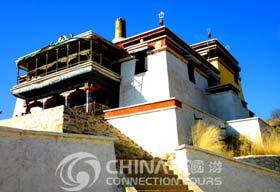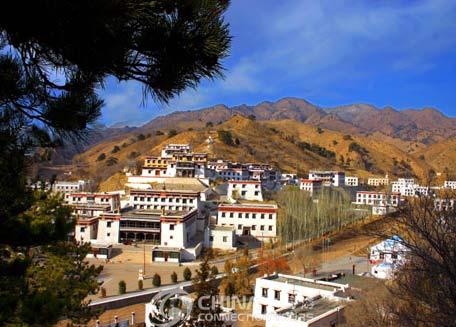 Located about 70km to the northeast of Baotou, the 250-year-old Wudangzhao Lamasery is the largest of its kind in western Inner Mongolia. The style of Buddhism that is practiced here, of the Yellow Hat Sect (Gelukpa), has a strong following in Mongolia, ever since the Mongols invaded Tibet in the thirteenth century, and nowadays this area still attracts pilgrims in a multitude. The Lamasery is named Wudangzhao, literally Willow Lamasery in Mongolian, because the area around the temple has long been covered by these wispy trees.
Located about 70km to the northeast of Baotou, the 250-year-old Wudangzhao Lamasery is the largest of its kind in western Inner Mongolia. The style of Buddhism that is practiced here, of the Yellow Hat Sect (Gelukpa), has a strong following in Mongolia, ever since the Mongols invaded Tibet in the thirteenth century, and nowadays this area still attracts pilgrims in a multitude. The Lamasery is named Wudangzhao, literally Willow Lamasery in Mongolian, because the area around the temple has long been covered by these wispy trees.
The original name of Wudang temple is Badager temple. The word of Badager in Tibetan language means white lotus. The Wudangzhao Lamasery is the largest well-preserved Tibetan-style construction in Inner Mongolia. The Lamasery itself is of traditional, pretty Tibetan architecture, with white walls and flattened roofs.
At the beginning, the Lamasery had over 1,200 resident monks. The complex was built in 1749, and covers a total area of approximately 50 acres. It has been home to a number of "Living Buddha", seven of whose ashes have been deposited in one of the main halls. In total the place has six main halls including a large collection of Buddhist art in the lamasery, ranging from ancient sculptures to murals of gold, silver, copper, wood and even soil.

